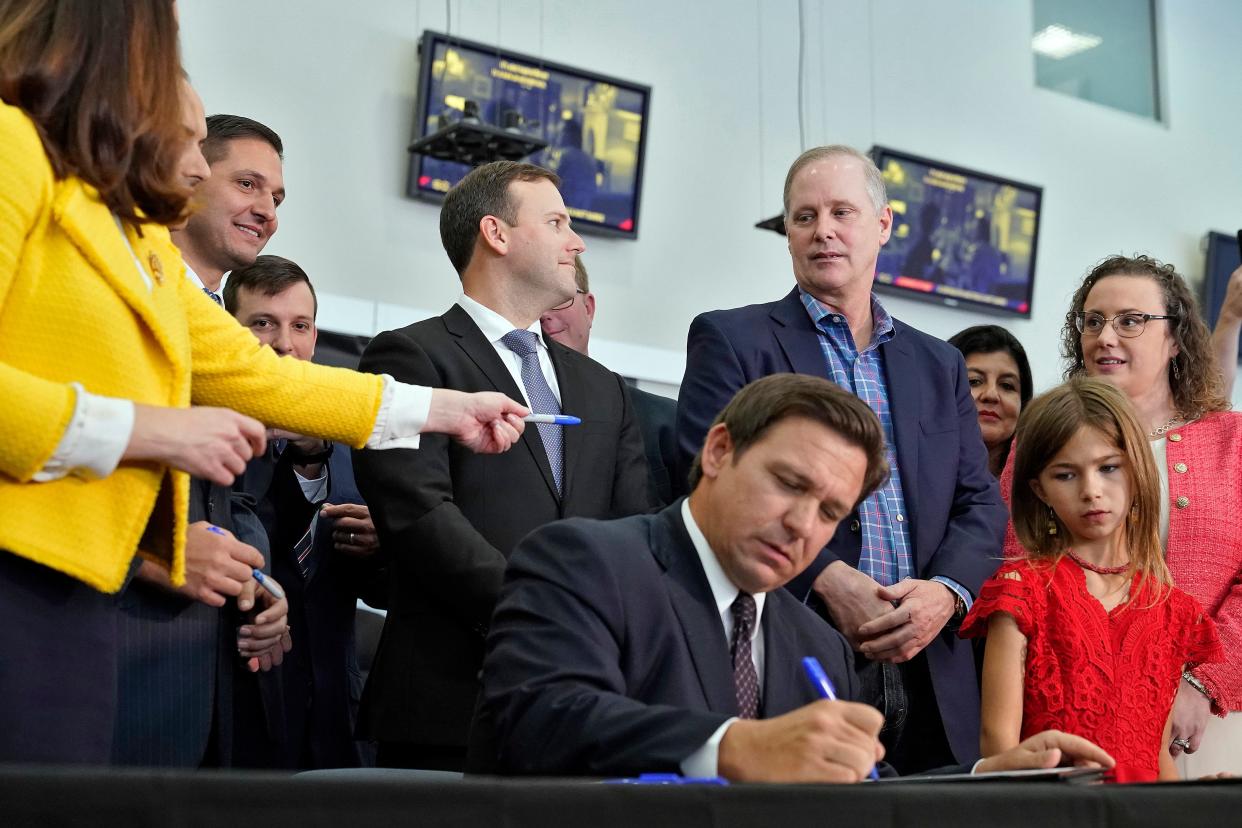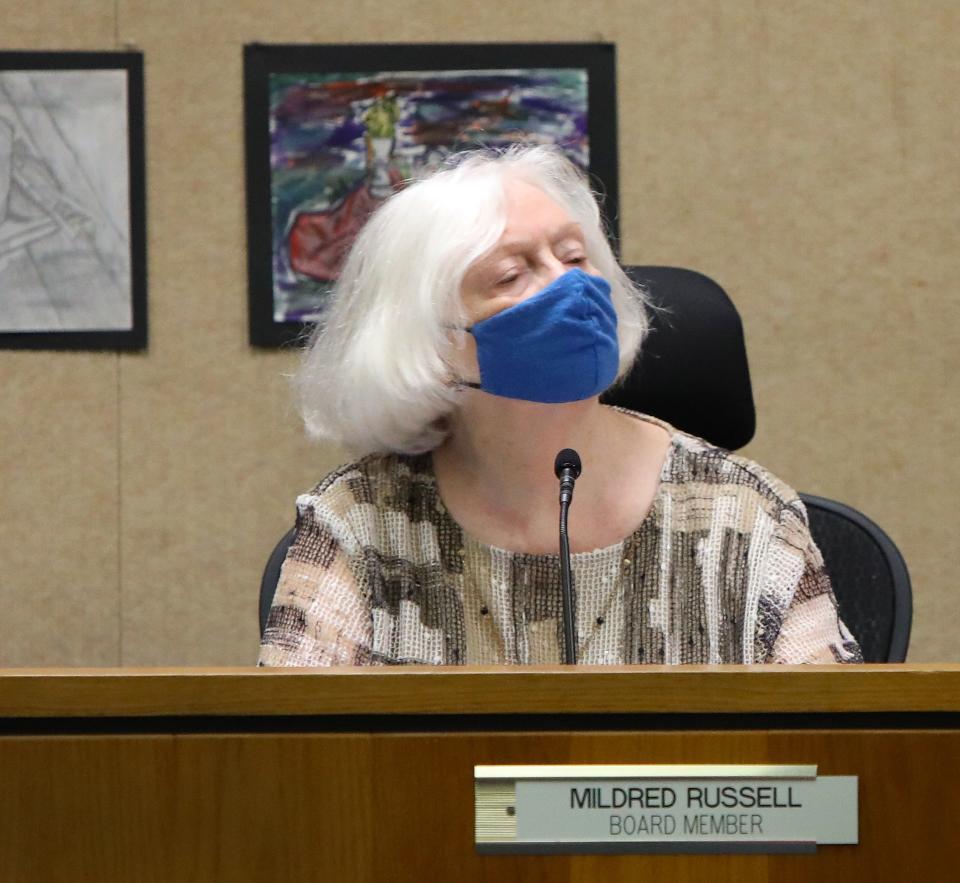The power of your vote is diluted by state laws and orders limiting local decision-making

- Oops!Something went wrong.Please try again later.
From masks in schools to plastic straws, the issue of local control has been in the news a lot in Florida lately.
Most famously, Gov. Ron DeSantis signed executive orders in 2021 banning school districts from implementing science-backed COVID-19 safety protocols and sought to financially punish districts that did. When the orders were found to be unconstitutional, the state Legislature passed bills restricting local governments from making local COVID-mitigation decisions and continues to seek punitive action against school districts. But mask policies are only the latest battle in a long and troubling history of eroding local control over local decisions.
So, what is local control? And why should all of us — Democrats, Republicans and independents alike — be concerned about losing control over the decisions made in our communities?
Put simply, local control means that local governments have the authority to make decisions about local issues such as public safety, transportation and education and the responsibility to vote on taxing and spending policies to support these services.
With local control, voters have “skin in the game” when choosing who to elect to city and county commissions and school boards. You vote for candidates who you trust to make the right decisions based on your personal and political perspectives. But the power of your vote is diluted each time a new state law or executive order limits local decision-making.
Unfortunately, the state Legislature has been on quite a tear when it comes to tying the hands of local communities. Recent laws have banned local decision-making on policies ranging from public health (masks and vaccines), to the environment (plastic bags, straws, cruise ships), and — perhaps most chillingly — education, where a proposed bill bans the teaching of U.S. history in a way that makes anyone feel “uncomfortable.” Regardless of the motivations behind these bills, each one takes control away from local governments, which means silencing the voices of voters.
Now, maybe you’re saying to yourself, “But I agree with these particular laws. I don’t want to have to wear a mask or use a paper straw!” And, of course, those feelings are valid. We are all free to disagree with any local, state, or federal law — it’s actually an American tradition.
Many laws have been challenged, and if found to be unconstitutional, have been overturned. Other times, communities elect new representatives to change laws, working within the confines of the U.S. and state constitutions.
But here’s the thing about losing local control: it’s not just bad for one political party or another, it’s also bad for our communities and our collective trust in the rule of law. Consider for a moment if the other party was in power in Tallahassee and decided to ban rural cities and counties from implementing policies that aligned with their local values and sense of fairness. Sounds unconstitutional, doesn’t it?
In Florida generally, and in Alachua County specifically, local control is under attack, and it’s worth fighting back. While there are several current examples of state overreach into our local business, one of the most obvious cases is at the School Board, where the governor vacated the seat of elected board member Diyonne McGraw, leaving the seat empty for three months before appointing Mildred Russell as her replacement.
Critically, Russell lacks even passing experience in public education, finance or administration. But she does bring something else to the board: an unelected political perspective.

As Gov. DeSantis’s appointee, Russell’s seat on the board represents a direct and politically motivated taking of local control away from the voters of Alachua County and gives an unelected appointee the power to set educational policy. Perhaps most disheartening is the fact that two elected board members (both of whom have announced their retirement) are often willing to side with an unelected DeSantis appointee over the will of the voters.
Regardless of your political affiliation, I hope we can all agree that local elected representatives should have sole discretion in governing our local institutions — and if they make bad decisions, we vote them out! In a year full of upcoming local elections, we will surely argue over the merits of the candidates (as we should!), but we need to come together across parties to stand up for local control in Gainesville and Alachua County.
David Kaplan lives in Gainesville.
Join the conversation
Send a letter to the editor (up to 200 words) to letters@gainesville.com. Letters must include the writer's full name and city of residence. Additional guidelines for submitting letters and longer guest columns can be found at bit.ly/sunopinionguidelines.
Journalism matters. Your support matters.
Get a digital subscription to the Gainesville Sun. Includes must-see content on Gainesville.com and Gatorsports.com, breaking news and updates on all your devices, and access to the Gainesville.com ePaper. Visit www.gainesville.com/subscribenow to sign up.
This article originally appeared on The Gainesville Sun: David Kaplan: Local control is under attack in Florida

